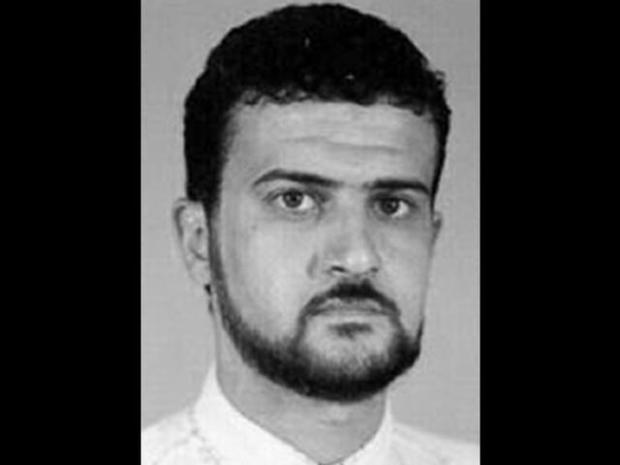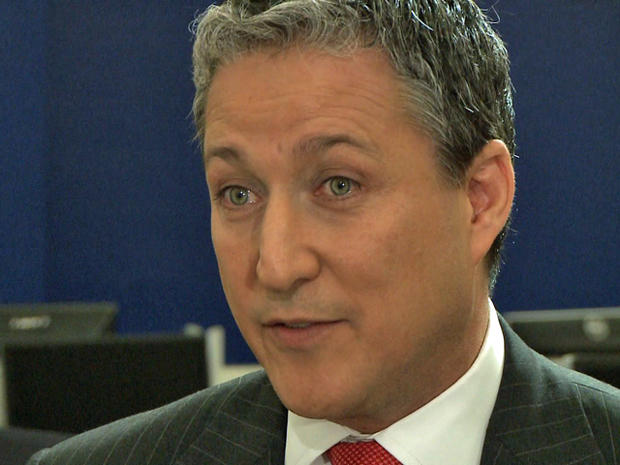Former federal prosecutor: Al-Libi capture "a significant accomplishment"
(CBS News) NEW YORK - Until two years ago, David Raskin oversaw terrorism prosecutions in the Southern District of New York, including the never finished case stemming from al-Qaeda's most lethal attack before 9/11, the 1998 twin truck bombings of American embassies in East Africa.
For 15 years, the Libyan best known by the alias Anas al-Libi had been among those charged in the terror conspiracy but never caught. However on Saturday,U.S. forces successfully picked him up on the streets of Tripoli.
Al-Libi was close to al-Qaeda's founder, Saudi exile Osama bin Laden, Raskin said. He joined the Islamic terrorist organization after bin Laden moved his operation from Afghanistan to the Sudan, where he was based for six years before moving back to Afghanistan in 1996.
"He is one of the original al-Qaeda members," Raskin said. "He was member of al-Qaeda during al-Qaeda's early stages where their anti-U.S. agenda was being formed."
In the early 1990s, al-Libi was one of the al-Qaeda operatives allegedly responsible for scouting American targets in Kenya for bin Laden.
"He had done surveillance of a variety of targets in the Nairobi area with a couple other very serious al-Qaeda operatives," Raskin said. "Part of that surveillance included taking photographs of the United States embassy."
When al-Qaeda's suicide truck bomb exploded at the embassy in 1998, it killed 213 people, including 12 Americans, while another truck bomb simultaneously destroyed the U.S embassy in Dar es Saalam, Tanzania and killed 11 people.
At the time, al-Libi, a self-described opponent of the Qaddafi regime in Libya, was living under a grant of political asylum in England. When Scotland Yard searched his residence in Manchester in 1999, detectives found his laptop, but al-Libi was gone.
"It is unclear where he has been for the last 15 years," Raskin said.
The computer contained a 180 page manual on terrorist tradecraft with lessons from document forgery and secret communications to weapons training and assassinations.
"This is a tremendously significant document," Raskin said. "It really made clear how serious a threat al-Qaeda was, because it lays out step by step the things an operative would have to do to pull off a terrorist attack like 9/11 or the embassy bombing attacks in '98."
Al-Libi remains under indictment for the embassy bombings and, if convicted, could face life in prison. That was the sentence handed down for Ahmed Khalfan Ghailani, another embassy bombing conspirator captured overseas, in 2004, held at the military prison in Guantanamo Bay, Cuba, and then transferred for a 2009 jury trial in Manhattan federal court.
Raskin expects al-Libi to follow the same path, minus the detour to Guantanamo. He predicted al-Libi will be interrogated first for any current intelligence information before being read his Miranda rights and questioned about the charges against him.
"I would certainly expect, because he is under indictment in the Southern District of New York, that he'd be brought to New York after an interrogation is done of him of overseas," Raskin said. "It seems that we've moved beyond the rather foolish policy of trying them in military commissions."
Military commissions at Guantanamo are pending for five men accused in 9/11 attacks, including alleged mastermind Khalid Shaikyh Mohammed, but after a decade in captivity, there is no trial date set for him.
Only a handful of convictions have resulted from judicial proceedings at Guatanamo since it opened in 2002, while federal courts have yielded several hundred terrorism-related convictions, as documented in annual reports by the NYU Center for Law and Security and pro-trial groups such as Human Rights First.
Raskin, who is now a partner in the law firm Clifford Chance, handled many of those cases, including the government's only completed 9/11 case, against Zacarias Moussaoui.
"Many of those trials have been done in Manhattan in the federal courts there, presided over by experienced judges with experienced prosecutors and experienced defense lawyers at the helm, and it's crystal clear, not just to me but probably to the U.S. government at this point that that is the proper way, the better way, the more efficient way to try these cases."
National Security Council spokeswoman Caitlyn Haiden said Sunday in a written statement where to prosecute foreign terrorism suspects captured outside a war zone is decided "on a case-by-case basis" by the Justice and Defense Departments.
"Courts have a long track record of success, proving that federal prosecutions can often be the most effective mechanism for gathering useful intelligence, neutralizing a threat, and keeping a dangerous individual behind bars," Hayden said, but added military commissions "are potentially viable options."


